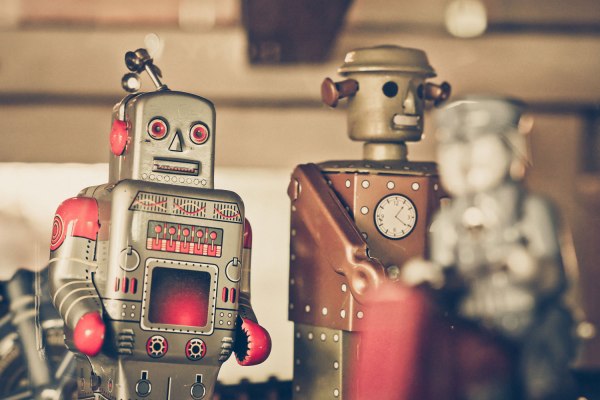Unlike the robots in Five Nights At Freddy’s, Clearpath’s new products won’t sneak up on you in the dark while you’re guarding an abandoned warehouse. In fact, their products are aimed at making warehouse workers’ lives easier and decidedly non-scary.
The company, which recently raised an $11.2 million ($14 million CAD) Series A from RRE Ventures after six years in business, is building robots to do dirty jobs. Their upcoming project – and the reason for the raise – will create a swarm of carrier robots that can pick and place items on shelves and other storage systems automatically, freeing up humans to focus on other logistical tasks (and not running in terror).
“We want to bring service robots into the industrial market,” said Matt Rendall.
The founders were all mechatronics engineering students at the University of Waterloo and worked on an intelligent ground vehicle that could clear land mines. They are proponents of the belief in “ethical robots” and they are original members of the campaign to Stop Killer Robots. While the sell to militaries, the goal is to place robots – not humans – in harm’s way.
“Ethical robotics refers to Clearpath’s belief and practice that they should not sacrifice ethics for revenue,” said Rendall. “Robots should make life better for people not worse.”
The team has done work for many major research universities as well as Google, NASA, and Microsoft. The money will be used to scale the business and build out autonomous industrial systems that will be able to haul packages hither and yon or drag ore or mud through a mine. Clearpath’s previous systems included the Grizzly, an autonomous ATV used by the Army as a base for battlefield experimentation.
“We are building robots that are essentially self-driving vehicles for the factory floor. Factories are organized chaos, and there is a huge movement to automate manufacturing operations, particularly for dull, dirty and dangerous jobs, and this fits with our mission to use technology to make life better,” said Rendall. “We envision a world where people don’t get hurt at work and where manufacturers can move operations back to North America because they don’t have to chase cheap labor.”
